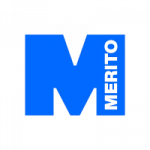The presents volume is the first of a planned five-volume complet providing a broad treatment of the concept of totality as employed by philosophy, art history, theory of literature and other disciplines. In contributions from historians and theorists of verbal, film, music and theatre art from various departments of the Philosophical Faculty of Charles University, Prague, the book looks as art culture material, primarily from the Czech lands, and offers an interdisciplinary analysis of the various manifestations of „total“ forms and frameworks accompanying the modern era. The book series is organized by thematic focuses: the initial volume, devoted to Nation, will be followed by War, Revolution, Future and The Everyday. All these concepts outline certain formative frameworks. A nation is a community whose members are connected by phenomena such as language, culture, history, education; it is a normative community, highlighting (for instance) the opposition between „us“ and „them“. The war is an extreme situation wherein states modify the rules of the thus far given order, and constrain and exploit their citizens. Especially the great 20th-century war conflicts had the character of a total war, ready to end an epoch and prepare the ground for the advance of a new era. Revolution – an instance of a historical break in a society's evolution – raises the issue of the old and the novel, and similarly to the war, it has a situative dimension. The future is ultimately linked to mentality; every society in every epoch relates to its future, it serves as a source of arguments in both political and cultural conflicts, and the visions of the future crucially inform culture and the arts. The everyday might appear to be a variegated topic which allows us to strike out in any direction; however, our focus will be its socio-cultural aspects, rigorously linked to analyses of particular artistic and art-historic connections. The present monograph is divided into two parts, called Perspectives (comprising those contributions that aim to map out more general issues and links) and Soundings (comprising case-studies and inquiries into a particular historical problem). The opening essay, by Josef Vojvodík, surveys the possible perspectives of analyzing the relationship between culture and totality from various perspectives outlined by the arts and the history of culture. Part One opens with Hana Šmahelová's study which analyzes the applications of an aesthetic or political totalizing viewpoint in the literature of the „national awakening“ (národní obrození). Kamil Činátl looks at the images of the nation's past in 19th-century textbooks. Magda Španihelová points out the role of physical education in the constitution of the image of national unity in the latter half of the 19th century. Luboš Merhaut analyzes the debate regarding the notion of a national literature as a whole in the 1880s. Radek Hylmar registers the totalizing images in the specific concept of nation and family that is employed by anarchic periodicals at the turn of the century. Kateřina Svatoňová's topic is the idealism of the national film of the first half of the 20th century. Ivan Klimeš looks at the inter-war history of the Czechoslovak film through the prism of the totalizing demands of linguistic policy. Jan Dobeš inquires into the mechanisms of politics and power in the relationship between the state and its culture after Munich, in the war years and in 1945–1948. Petr Mareš traces the changes of national stereotypes in Czech film comedy of the latter half of the 20th century. Petr A. Bílek observes the process of construing a frontier between „our own“ and „foreign“ in Czech popular and mass culture in the „normalization“ period (1969-1989). Petra Hanáková follows the nationalist viewpoints in Czech cinematography of the early 1990s. The opening text of Part Two, by Václav Vaněk, describes the realization of the concept of

